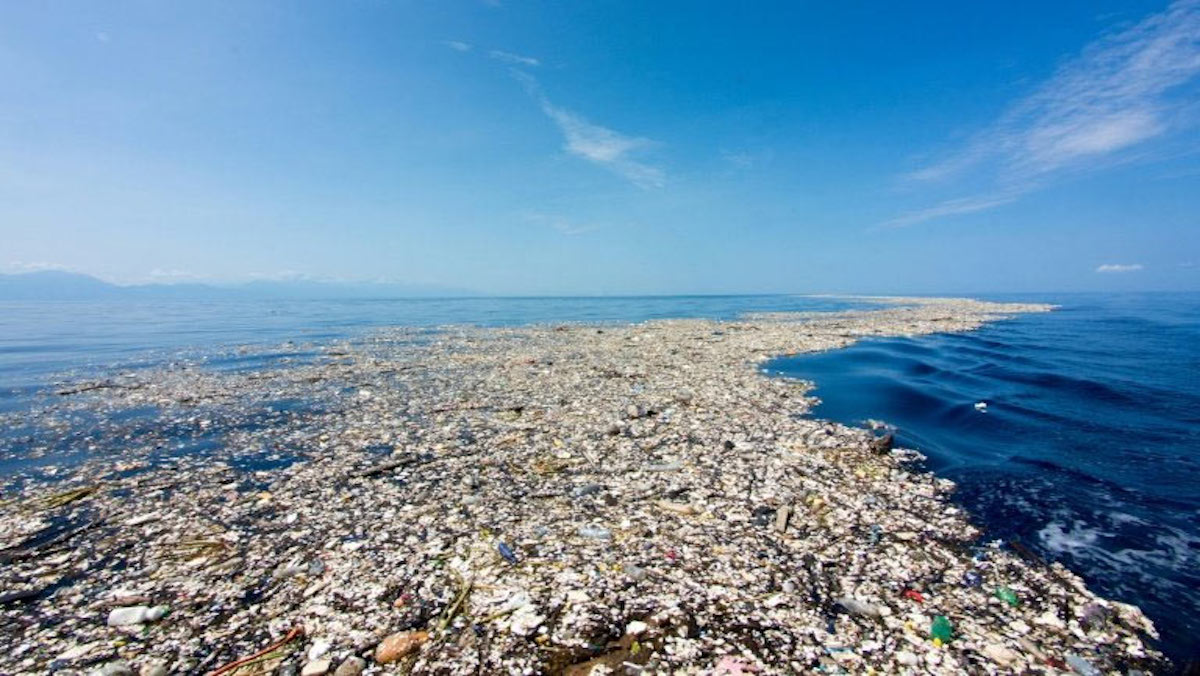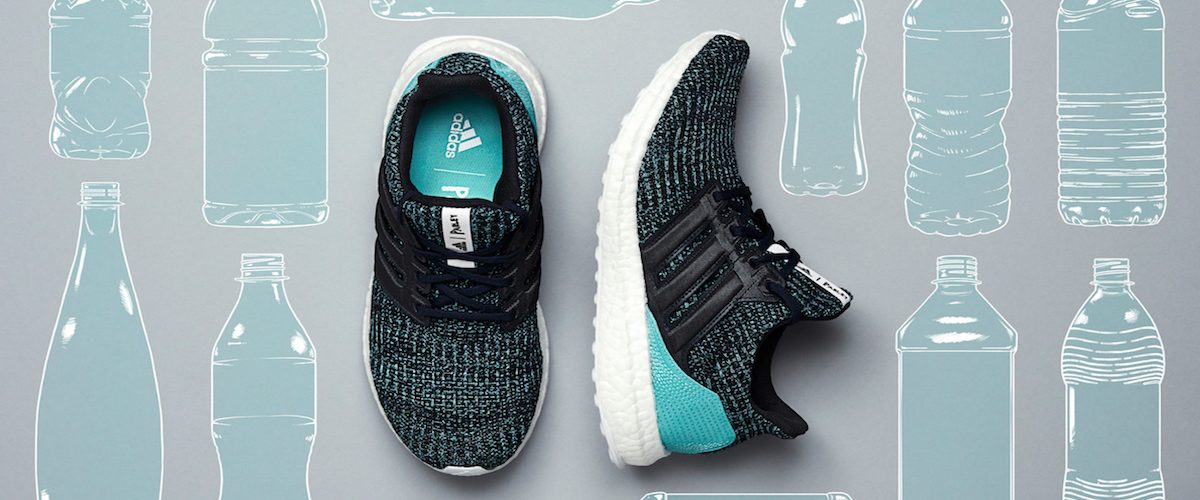There are currently 1.8 trillion teeny, tiny pieces of plastic floating around the Pacific Ocean between Hawaii and California. Those plastic particles polluting the sea have been dubbed the “Great Pacific Garbage Patch.”
According to a 2017 article published by National Geographic, there’s more than 6 billion metric tons of plastic waste in the world. Brands that are incorporating materials made of recycled plastic into their products have a seemingly endless supply of plastic at their disposal.

By repurposing this plastic waste, brands can give it life beyond the landfill and prevent it from causing more harm than is already done, all while creating innovative new technology and products. Using your purchase power to buy from brands that are actively trying to solve the plastic problem helps create a market for recycled plastic over virgin plastic.
These three innovative sports brands are making shoes that not only look good, they also have cutting-edge performance technology from recycled plastic and other recycled materials.
Adidas

Parley for the Oceans is an organization dedicated to addressing the threats against our oceans. In 2016, Adidas announced they would be making shoes from recycled plastic and launched a sustainable footwear line in partnership with Parley that features sneakers crafted from plastic “intercepted from beaches and coastal communities.”
“We are working with Parley to keep plastic out of our oceans and transform it into high-performance sportswear,” Adidas explained about the collaboration on its site. “Spinning the problem into a solution.”
According to Adidas, every pair of shoes made with the Parley Ocean Plastic prevents 11 bottles from making their way into the oceans. According to its website, that means it retrieved at least 11 million bottles from coastal areas.
Puma

Puma is taking its environmental commitments seriously. Not only did the company recently announced that its 2020 target for the use of sustainable cotton was reached two years ahead of schedule, they also announced a new sustainable sportswear collection initiative with First Mile, a company which supports low-income communities in Haiti, Honduras and Taiwan.
How? By collecting plastic bottles which would have otherwise continued to pollute the streets, canals and landfills to produce recycled polyester.
Using such bottles as a raw material source, First Mile produced more than 300 tons of recycled yarn in 2018. Consumers can use their purchasing power to support responsible sourcing and create a positive social and environmental impact around the world.
“Plastic pollution is one of the most pressing environmental problems the world faces today,” said Adam Petrick, Global Director of Brand and Marketing for Puma. “That is why we are very excited to join First Mile and be a part of the solution while supporting low-income communities and transparency in supply chains.”
Consisting of shoes and apparel featuring utility pockets and outdoor elements, the PUMA x First Mile collection will be released in 2020.
“We are thrilled to welcome PUMA to join a group of bold, innovative brands leading the way in responsible sourcing,” said Kelsey Halling, Director of Partnerships at First Mile. “The PUMA x First Mile collaboration will positively impact lives by giving value to plastic waste.”
Nike

Nike’s Flyknit shoes reduce waste by featuring a one-piece upper in the shoe that doesn’t require multiple material cuts that are typically used to build a sports shoe. Back in 2016, Nike announced that all core yarn for its Flyknit styles would be made from recycled polyester.
Because the Flyknit essentially completely eliminates waste, that technology has reduced Nike’s environmental footprint by some 3.5 million pounds of waste.
Utilizing recycled PET plastic bottles, Nike designs superior performance apparel. Reclaimed, discarded plastic bottles are melted down to produce new yarn and converted into fabric to create NIKE’s high-performance apparel. This process saves raw materials and reduces energy consumption by an estimated 30% compared to manufacturing virgin polyester.
While we know that the best thing we can do is to avoid using plastic as much as possible, purchasing goods that are made from recycled plastic helps to keep plastic out of the ocean and landfills. Use your purchase power wisely and make your money matter.







